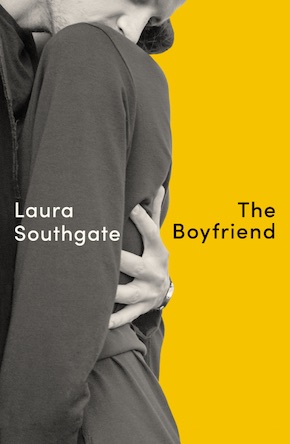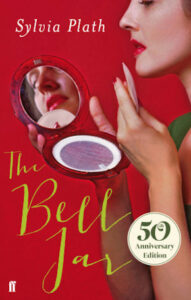Misfiring love
by Laura SouthgateI’m really not a big romance fan, but I have to admit I do love a bad romance. Here are some of the fictional relationships that have stayed with me since first encounters – some troubled, some problematic, and some downright bizarre – from my formative years up to more recent times.
Manhattan, written and directed by Woody Allen (1979)
As a teenager, the final scene in this movie struck me as unbearably romantic: Tracy (Mariel Hemingway), who’s just out of high school, brushes her hair in the lobby of her apartment building ready to take off to drama school in London. Isaac, 42, (Woody Allen) turns up puffing from running across town to tell her not to go. It’s only now I’m almost Isaac’s age that I feel the full force of the discomfort – the sickness, actually – of their age imbalance. In that closing scene she even announces playfully that she’s “legal” now – she just turned eighteen, but she’s “still a kid”. Isaac’s main concern is that she stays that way.
My So-Called Life created by Winnie Holzman (1994–95)
I was hooked on this TV show when it came out. Clare Danes stars as Angela Chase, who, in the course of the series, starts going out with popular ‘bad boy’ Jordan Catalano (Jared Leto). Meanwhile, a socially awkward neighbour called Brian Krakow (Devon Gummersall) hangs around her house and has chats with her dad when she’s not there and clearly has a raging crush on her. The show captures the confusing muddle of adolescent desire and romantic projection. It ends on what was no doubt intended as a cliffhanger before the show was cancelled, with Angela facing a choice between Brian, who has just covertly declared his love for her through a letter he ghost-wrote for Jordan, and Jordan himself, who looks cute and moody and treats everybody around him like dishrags (among other things, he’s just had sex with Angela’s best friend). It’s not clear where Angela’s desire lies at this point, but when Jordan pulls up in a car alongside her and Brian, all the convincing she needs seems to be: “Don’t worry, your Mom says it’s okay.”
Good Morning, Midnight by Jean Rhys (1939)
In Sasha’s back story is a financially and emotionally strained marriage, a husband who announces one day that she doesn’t know how to make love and walks out on her, pregnant and penniless, before returning several days later with unexplained wads of cash. “It wasn’t that he knew so exactly when to be cruel, so exactly how to be kind,” Sasha explains, realising that she loved him “for always” is what mattered. “It’s like what death must be. All the insouciance, all the gaiety is a bluff.” But their relationship is not for always, the baby dies, and in the narrative present Sasha finds herself very much alone. The story is told in fragments suggestive of trauma and the mental blanks that can accompany it.
Brontë’s portrayal of the first Mrs Rochester is problematic to say the least – drawing on racist tropes and implicitly condoning her solitary confinement on the grounds of her ‘lunatic’ status.”
Wide Sargasso Sea by Jean Rhys (1966)
Good Morning, Midnight was the last of Rhys’s novels to be published before a long writing drought that ended with her intertextual masterpiece Wide Sargasso Sea, Rhys’s reply back to Jane Eyre. The novel recasts the first Mrs Rochester (a.k.a. the archetypal madwoman in the attic) as a melancholic young Creole woman, Antoinette Mason, and lays the blame for her mental illness squarely at the feet of Mr Rochester himself. Their relationship is passionately destructive. Mr Rochester calls Antoinette ‘Bertha’ for no other reason, it seems, than to enrage and control her. Violence, death and altered states are ever present. Antoinette’s entirely justified anger is reflective of the uncomfortably unsympathetic and objectifying characterisation she springs from.
Jane Eyre by Charlotte Brontë (1847)
Brontë’s portrayal of the first Mrs Rochester is of course problematic to say the least – drawing on racist tropes to characterise her as a bestial ‘thing’ (she’s a “clothed hyena” in Chapter 26, for example, standing “on its hind feet”) and implicitly condoning her solitary confinement on the grounds of her ‘lunatic’ status, she is a gothic device before she becomes a mere obstacle in Jane’s love story. And what sort of love story is this? Until the book’s final pages, when it closes on their seemingly peaceful union, this romance is non-stop torment. After Jane discovers the truth, many pages are devoted to Mr Rochester’s own personal account to Jane of his “infernal union” with Bertha, the cover-up, and a series of extramarital affairs, throughout which he highlights his own feelings of disgust and anguish. This culminates in a marriage proposal, of all things, to which Jane responds with some mental turmoil of her own.
The Bell Jar by Sylvia Plath (1963)
Maybe because of the way Plath’s tragic life and early death have been mythologised, her comedic chops haven’t been given the airtime they deserve. The Bell Jar is at times as funny as it is coldly tragic, and a cutting social commentary on the sexual mores of 1950s America. The book is funniest and at its most ruthlessly uncomfortable when describing Esther’s dates, especially her clean-cut medical student boyfriend Buddy Willard with whom she finds herself perilously close to engagement, despite her evident lack of attraction to him:
I stared at Buddy while he unzipped his chino pants and took them off and laid them on a chair and then took off his underpants that were made of something like nylon fishnet.
“They’re cool,” he explained, “and my mother says they wash easily.” (Chapter 6)
Sudden Manhattan, written and directed by Adrienne Shelly (1996)
“Don’t get wiggy, Donna,” her creative writing teacher Murphy warns her over a glass of Scotch. “It’s not that cute past 21 or 22.” Donna (Adrienne Shelly) has man trouble, in the form of the aforementioned Murphy (Roger Rees), who owns her apartment building and is letting her live rent-free in exchange for indulging his drunken pontifications, emotional abuse, and self-pitying declarations of ‘love’. Adam (Tim Guinee), who literally bumps into her in the street and invites her up for coffee, has an alarming tendency to cease all activity during lovemaking and cheerfully declare it a failure. Adam’s denial of any negative emotion adds to Donna’s growing sense of detachment from reality. Eventually she asks him gently if he actually has a penis. “Yeah, yeah I do,” he says. “I just haven’t figured out how to use it yet.” “Well that’s fair,” she responds. “I think there are a lot of people who could say the same thing.”
The Idiot by Elif Batuman (2017)
Disappointing lack of sex acts, declarations of love and even kissing notwithstanding, this novel takes you right into the blazing heart of a very cerebral and intense romance between a young woman in her late teens (Selin) and a fellow student several years her senior (Ivan). They meet in Russian class at university and begin a relationship by email. The book is set in the late nineties and the magic of this new form of correspondence is palpable and feels almost sweetly illicit at times. The pair find it difficult to expand their connection into anything live and in-person, which provides the source for a great deal of comedic heartache.
Fleabag season 2, written by and starring Phoebe Waller-Bridge, directed by Harry Bradbeer (2019)
The slow, fraught scene between Fleabag and the priest in the church culminating in his sexy command for her to ‘kneel’ has got to be one of the most erotically charged scenes ever recorded for television. Maybe the series’ brilliant writing and performances help us overlook the ickiness of anything remotely sexual happening with a priest in and around a confessional booth. What comes through above all the desire and longing is a deeply moving study of love and empathy and the fragility of human connection.
Sally4Ever, written and directed by Julia Davis (2018)
This brilliantly subversive comedy series portrays the mindfuck of being trapped in not only one but two nightmare relationships through the perspective of long-suffering Sally (Catherine Shepherd), who despite every fibre of her being no doubt screaming at her not to, somehow finds herself engaged to long-term partner David (Alex Macqueen), whose idea of a fun night in is spent sniffing the stains on his mother’s wedding gown. A chance meeting on the Tube leads to an intense and troubled affair with Emma (Julia Davis), an enchanting but sociopathic chanteuse and would-be actress who manipulates her way into every aspect of Sally’s life.
 Laura Southgate was born in Wellington, New Zealand in 1978. She holds an MA in English from the University of Auckland and in 2018 gained an MA in Creative Writing from the International Institute of Modern Letters at Victoria University of Wellington, where she won the Adam Foundation Prize. The Boyfriend, her first novel, about a turbulent relationship between a 17-year-old girl and a 42-year-old man, is now published by Fleet/Hachette Digital in Paperback Original, eBook and audio download.
Laura Southgate was born in Wellington, New Zealand in 1978. She holds an MA in English from the University of Auckland and in 2018 gained an MA in Creative Writing from the International Institute of Modern Letters at Victoria University of Wellington, where she won the Adam Foundation Prize. The Boyfriend, her first novel, about a turbulent relationship between a 17-year-old girl and a 42-year-old man, is now published by Fleet/Hachette Digital in Paperback Original, eBook and audio download.
Read more
@FleetReads
Author portrait © Russell Kleyn



